Bringing Your Dog Into Your New Baby's Life
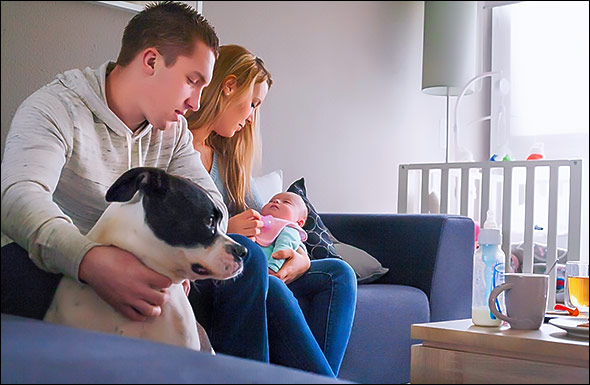
All too often, animal shelters have to take in dogs that have become homeless through no fault of their own. They are simply the victims of a new parent's understandable concern for the safety of their new baby.
Many believe that a dog and a new baby cannot happily coexist, so therefore the dog has to go. This is not necessarily the case. A new baby does not mean you have to abandon your dog.
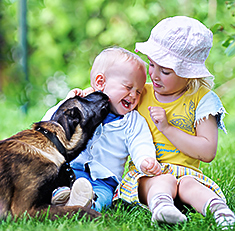
With a little work on your part the entire household can live in harmony. Your new baby will grow up with a furry best friend and your dog will not go through the trauma of losing his home and family.
Here are some ways to help your dog adjust to the arrival of your new baby. Following these tips will help to avoid possible problems and provide a safe and happy environment for both your new baby and your pet.
Preparation
The key is to prepare your dog prior to your new baby's arrival. Keep in mind that your dog is a part of your family too.
A new arrival is just as big an upheaval in his daily life as it is yours. Laying some groundwork before the baby comes will make it much easier for your dog to cope with the change that is about to come
The first step is obedience training
This sounds simple, but it must go beyond just learning to sit and lay down. Your dog must become reliable in the down position, down-stays, leaving a room when told or not entering a room all together.
This will require teaching him boundary control and using positive reinforcement throughout all of his training. This is the best way to ensure that his behaviors are permanent and trustworthy!
You must get your dog to the stage where he is obedient to all your commands. If you command "Leave it!" he must immediately ignore dropped food, a toy or anything he might find interesting.
Another important command your dog must obey is "Drop it!" If you give this command, he must immediately drop whatever is in his mouth.
It is this obedience that will help him to better accept a new baby with all its unfamiliar smells and sounds. He will also be better equipped to deal with the fact that he is no longer the center of your attention.

After Baby Arrives
When your baby arrives, your dog will naturally be very curious. Some under-socialized dogs may even be frightened. If you have a genuine concern for your baby's safety, begin introductions with the dog on a leash.
Holding your baby in the safety of your arms, sit low enough so that the baby is at the eye level of your dog. Ask a helper to attach a leash to your dog, and hold him a few feet away from the baby.
He should be able to see and smell the infant, but not be able to make any sort of contact. You can then judge how to proceed based on your dog's demeanor.
If the dog is calm and well-behaved it should be okay to allow him to approach. If the dog is agitated or too excited you will probably need more time.
Command the dog to sit quietly and, using positive reinforcement, give him a high value reward such as real meat or cheese. This reward should be more interesting to him than the baby, so it must be something he really loves.
When he sits on cue, reward him and ask him to stay. You can then bring the baby closer to him, or ask him to take a step or two and sit again. Reward him every time he does what you ask.
Doing this keeps his excitement and interest in the baby controlled. This will help to prevent any accidents and allows him to follow your lead. Continue bringing the dog and your baby closer, but only while the dog is under control.
He must be calm and polite; not pulling on the leash, barking, jumping or acting too excited. If he is too exuberant to control, remove him from the room. Give him time to calm down, and then try again.
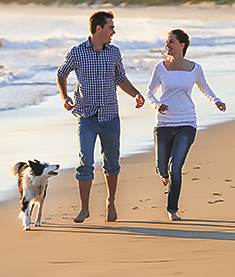
Don't Forget your Dog
During this time of transition, don't forget your dog's needs. He will be far more receptive to the changes in his routine if all his needs, especially exercise, are met.
If you can tire him out with some extra exercise before introducing him to your baby, he will not be as excited and will be much easier to control.
Reward him every time he behaves in a calm and well-mannered way when he interacts with the baby. He will come to associate calm and relaxed behavior around your little one as a positive experience.
He will then choose to behave politely, instead of being out of control, rambunctious, rough or loud.
Finally, don't give up. At times it may seem like the adjustment is just too much to handle. More often than not, it is the parents that struggle with the training.
Dogs are very adaptable creatures, and with your help and guidance your canine companion will bounce right back into his usual routine and enjoy the company of the newest family member.
Doggies Den: Latest Articles
 Homemade Thanksgiving Treats for Your Dog
Homemade Thanksgiving Treats for Your Dog
NUTRITION We all want to include our dogs in our holiday celebrations, but hopefully, you're aware that sharing table scraps with your dog isn't always the best idea.
 Keeping Your Dog Safe during the Summer Months
Keeping Your Dog Safe during the Summer Months
HEALTH Summer is coming on fast, so it’s time to plan how you will keep your dog safe and healthy through the lazy, carefree, warm days.
 Vaccination Time Again-Keeping Your Puppy Healthy
Vaccination Time Again-Keeping Your Puppy Healthy
DOG HEALTH So you have your new puppy picked out. There are quite a few shots, treatments and examinations that will keep the newest member of your family healthy.
 Canine Thanksgiving Feast
Canine Thanksgiving Feast
NUTRITION With the wide variety of food at Thanksgiving dinner, chances are you'll want to give your dog something special, too. If you're contemplating what to feed your dog for the holiday, here is a guide to a great Canine Thanksgiving Feast.
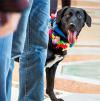 Dog Walking Tips Every Owner Should Know
Dog Walking Tips Every Owner Should Know
DOG FUN Walking your dog is not only crucial to keeping him healthy and happy, it strengthens the bond between your canine friend and his caregiver. There are a lot of obstacles out there. Don’t forget these simple tips to keep your walk fun and safe in the outside world.
 The Benefits of Physiotherapy for your Dog
The Benefits of Physiotherapy for your Dog
HEALTH The same techniques that physiotherapists use to treat a variety of injuries and conditions in humans have been adapted to suit animals with great success. Family pets, show dogs, and working dogs can all benefit greatly from physiotherapy. Dogs whose activities involve a lot of agility are especially susceptible to the types of problems that physiotherapy can address.
 The Decision- Adding a Dog to Your Family
The Decision- Adding a Dog to Your Family
FIRST TIME OWNERSBringing a dog into your family is a decision where many people don’t realize it’s magnitude until after they have the dog. There are a number of things that you need to research before you decide to purchase a dog, and it starts right in your own home.
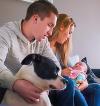 Bringing Your Dog Into Your New Baby's Life
Bringing Your Dog Into Your New Baby's Life
HEALTH Many believe that a dog and a new baby cannot happily coexist, so therefore the dog has to go. This is not necessarily the case.  A new baby does not mean you have to abandon your dog.

Doggies Den:
Most Popular Articles
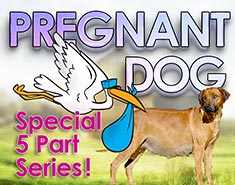
Dog Pregnancy Symptoms
HEALTHIf you suspect your dog might be pregnant, check out part one in this series on pregnant dogs, where we cover pregnant dog symptoms.
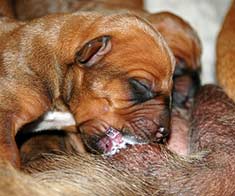
Dog Birth
HEALTHIn the third article of our dog pregnancy series, we look at the wonderful, but messy, process of bringing newborn puppies into the world.
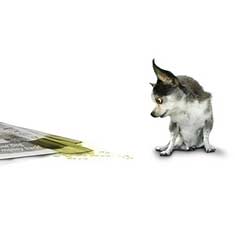
Indoor Dog Potties
DOG PRODUCTSIt's been a long day at work. You were so busy, you didn't even take time to eat a sandwich, let alone run home to let your dog out. You're on your way home, knowing the poor dog is crossing his or her legs by now, when your car breaks down, delaying you even further. Can't somebody make this easier?
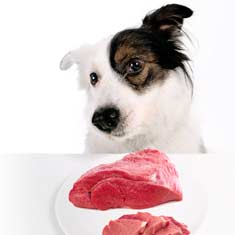
Your Dog’s Digestive System
PHYSIOLOGYEver wonder why your dog eats so fast? Or why he eats gross things? Or why he gets sick to his stomach? Or why his waste stinks so bad? Some of these things are normal, some are not.

Canine Respiratory System
BREATHINGThe basic function of your dog's respiratory system is to bring oxygen in to and remove carbon dioxide from the body. Knowing the symptoms of respiratory diseases can help you help your stay healthy.
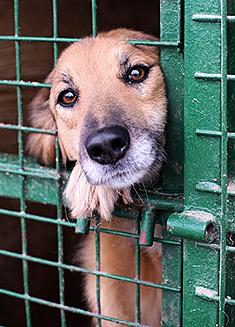
Shelter Dog Adoption Tips for Success
ADOPTION Are you intimidated by the prospect of "rescuing" a dog from a shelter? One reason that you may be wary of adopting a dog from a shelter is not knowing how to choose. Adopting a dog from a shelter can be a rewarding process, if you're prepared to do a reasonable amount of research.
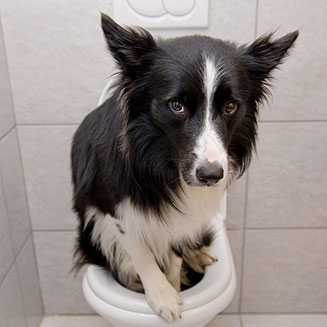
Canine Urinary Tract Infections
SYMPTOMS AND TREATMENTDoes your dog seem to be having trouble relieving his or her bladder? Learn how to recognize the signs of urinary tract infections and how to treat them before they spread.
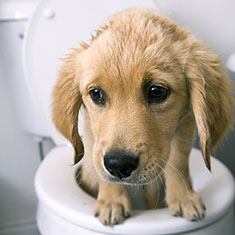
What to do for Dog Diarrhea
SYMPTOMS AND REMEDIESIf you have dogs in your house for any length of time, you have likely experienced at least one bout of dog diarrhea. Beyond the pain in the tuckus involved in cleaning up the mess, you should know what causes diarrhea, and when it's important to see the vet.
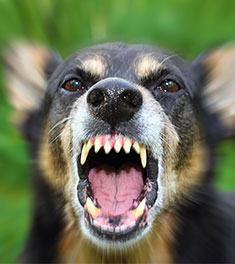
What to do for a Dog Bite
DOG BEHAVIOR Getting bitten by a dog can be scary, and you may be tempted to run around in circles for a while, trying to figure out what to do. Here's our guide to help you manage the situation.
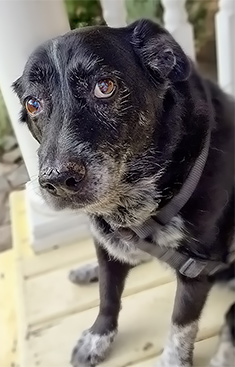
Top Ten Tips for Living with a Senior Dog
DOG HEALTH Bringing home a new puppy is so exciting, but it doesn’t take all that long for your exuberant puppy to grow into a senior dog who may have special needs. Here are the doggies.com top ten tips for taking care of your companion who has been with you through so much.
